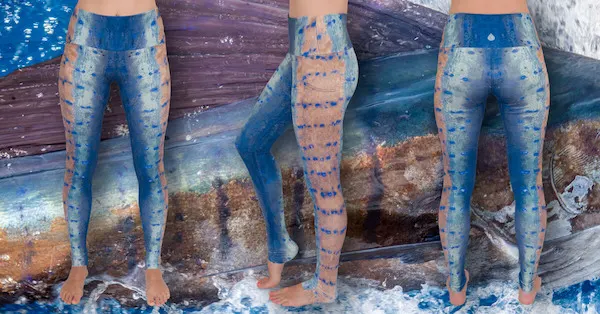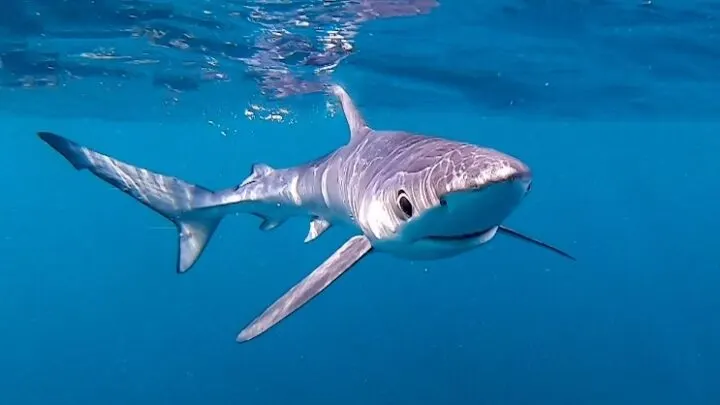Swimming with sharks in England isn’t usually something you hear in one sentence! However the UK has many ocean wonders that not everyone knows about and snorkelling with blue sharks ( not to mention Mola Mola and Blue Fin Tuna) in the summer in Cornwall is one of them. During the summer of 2020 we headed over to Falmouth in Cornwall to swim alongside the beautiful blue shark.
Where can you swim with Blue Sharks in the UK?
There are a few different places you can snorkel/swim with blue sharks in the UK. The most popular places being Plymouth in Devon or Falmouth in Cornwall.
In British waters they are generally found in the slightly warmer water of the south west of England and Ireland, although they can turn up elsewhere and have been sighted to the north of the British Isles.
How come there are blue sharks in UK waters?
Having spent the whole of the summer soaking up the sun’s rays, the Atlantic Ocean is the home to a large migration of blue sharks. They come to these temperate clear seas off the Cornish coast to look for the abundance of small fish that also frequent these waters. And it’s not just blue sharks in the UK, there are around 41 species of sharks in the UK – that’s more than in the Red Sea!
Snorkelling with blue sharks
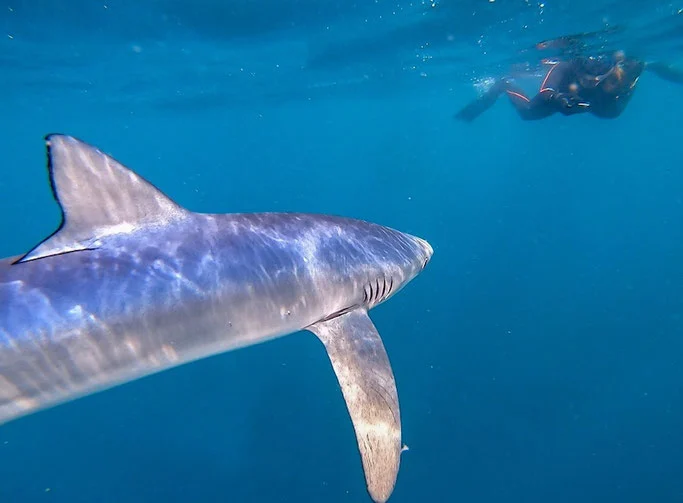
To be able to snorkel with blue sharks in the UK you have to take a specific blue shark trip booked from one of the local operators. You will then sail out offshore to a spot in the ocean ( well away from land) that the captain has experience in seeing sharks. Most trips use chum to attract the sharks. Even with chumming there is still a chance you may not see any sharks.
On our trip it took around 4 hours of chumming until we got the chance to get some good swimming interactions with the sharks. And when we did we also saw blue fin tuna and Mola Mola (sunfish) at the surface.
The sharks are confident and do come up to you – especially if you have a dome or camera – but quickly realise you are not that interesting and swim around you. Occasionally they bump their noses on camera domes or come close to check out divers fin. Like all wild animals and apex predators there is a certain amount of risk when swimming with these – and all – sharks, but personally we never felt intimidated or scared. We minimise that risk by wearing all black with no shiny objects that will unnecessarily attract them, as well as not causing lots of splashes and movements.
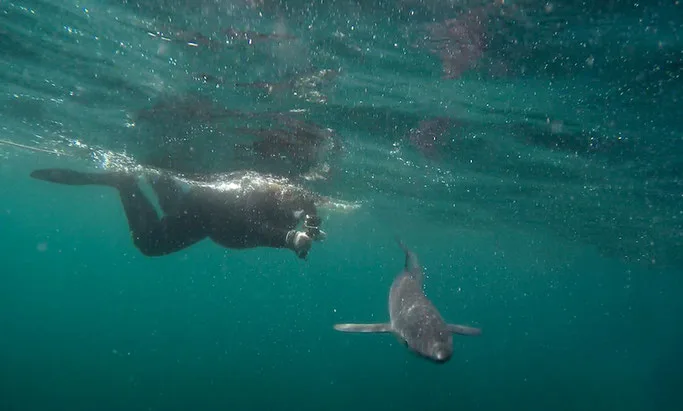
Trips usually last around 7 – 9 hours and you can expect to be in the water for a good few hours – as long as the sharks turn up. As mentioned before you could also see a lot of other different kinds of marine life both while sailing and swimming!
What you need to swim with sharks in the UK
We don’t need to remind you that the UK waters are always cold, whatever the weather on land, water temperature rarely goes above 16-17c in the UK.
- 5/7mm wetsuit! We used the Fourth Element 5mm Proteus 2 which was lovely and toasty
- Mask and Snorkel
- Fins
- All black gear
- Hood and gloves for warmth
- Warm clothes for the boat
- Lunch and snacks – food is rarely provided on UK dive trips
Find out more about equipment you need for UK diving here
Fishing and killing of Blue Sharks in the UK
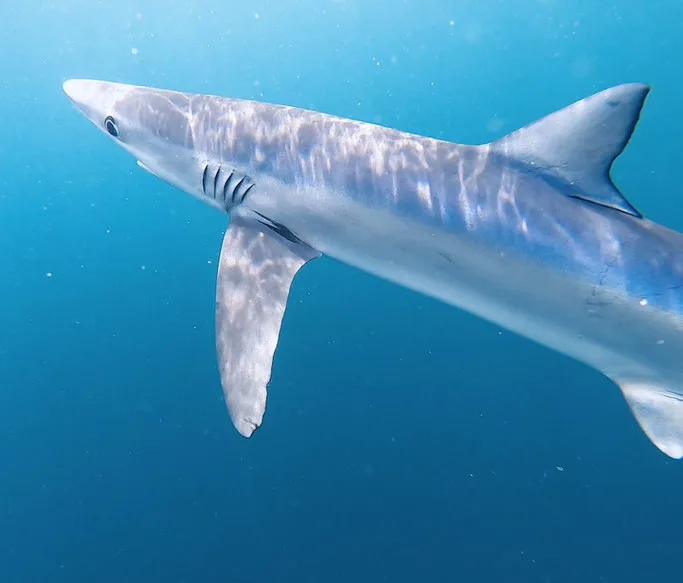
Blue sharks are caught commercially with several million being caught each year across the world. The flesh of blue sharks is not highly regarded, but the skin is used for leather and the liver for oil. The dorsal fin is also used to make shark fin soup. After these parts of the shark have been taken the remainder of the carcass may be thrown back into the sea or processed into fishmeal. The extent of the commercial exploitation of this species was outlined in 2018 when a Spanish fishing vessel, the Virxen da Blanca, was detained by the Irish Naval Service and found to have 1,250 kilograms of shark fin on board, along with an incredible 164,250 kilograms of blue shark on board – the equivalent of around 5,000 individual blue sharks.
The blue shark has an uncertain future if commercial fishing for this species continues at current levels. In their last assessment the International Union for the Conservation of Nature classed blue shark as Near Threatened on a global basis and in European waters with a decreasing population trend. In the Mediterranean blue shark was placed in the highest risk category of Critically Endangered and the IUCN noted that there are no recovery plans or fishery management schemes in place to allow stocks to recover.
Waterlust leggings 10% of profits go to marine science research & educational organizations that are putting in the hard work to make a tangible difference.
